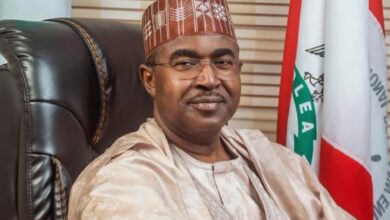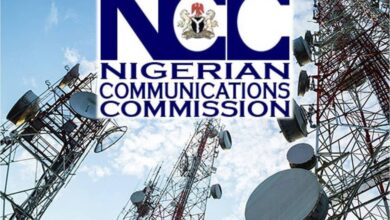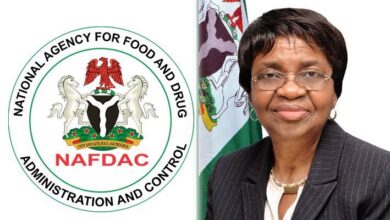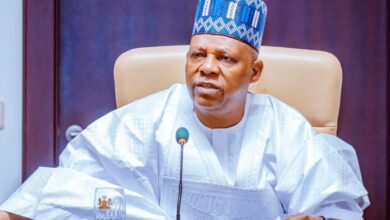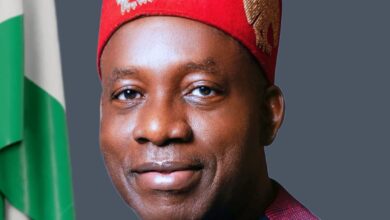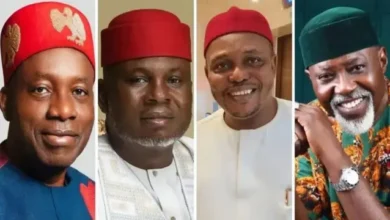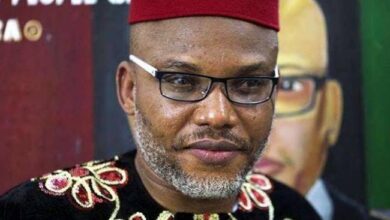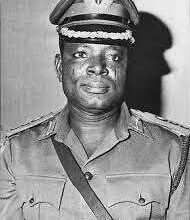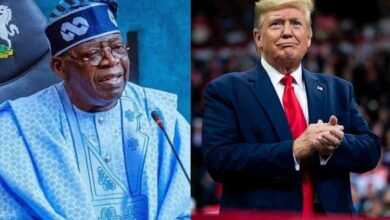
Nnamdi Kanu’s Conviction and the Politics of Igbo Loyalty in 2027
The conviction of Nnamdi Kanu has once again placed the Southeast at the centre of Nigeria’s political map. While the courtroom events are legal in appearance, many political observers believe the timing, tone, and trajectory of the case hint at something far deeper than a mere judicial outcome. In the eyes of these analysts, the unfolding drama around Kanu appears increasingly tied to the incumbent president’s long-term electoral strategy particularly the contest for Igbo loyalty ahead of 2027.
For several years, the Southeast has remained politically tense, with Kanu’s detention fuelling regional resentment and a sense of marginalization. Now, with the renewed push that led to his conviction, analysts argue that the government may be deliberately tightening the strings of political theatre. The belief in many quarters is that by sustaining pressure on the region, the presidency sets the stage for a grand gesture later on most likely a presidential pardon, strategically deployed close to the next general elections.
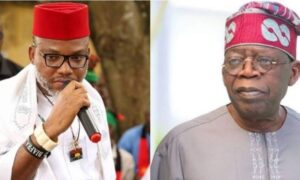
Under this speculation, such a pardon would be presented as evidence of magnanimity, reconciliation, and national healing. The effect, if the calculation succeeds would be to soften long-standing grievances and potentially sway Igbo votes toward the incumbent’s political interests in 2027. Whether this strategy will succeed or backfire remains to be seen, but its outline is already being discussed in political circles across the country.
Meanwhile, Justice Omotosho, whose ruling delivered this latest chapter in Kanu’s legal journey, has now written his name into the country’s judicial history whether for praise or criticism will depend entirely on how posterity, his professional peers, and the international community choose to interpret this moment. Some will see him as a firm interpreter of the law, others may view him as an example of the complexities and pressures that often shadow politically charged trials in Nigeria’s democracy. Either way, his decision has secured him a place in conversations that will linger far beyond this administration.
It is important to emphasise that these analysis remain interpretations not indictments. In a nation where politics and justice frequently intersect, the public naturally seeks meaning behind every major ruling. What is clear, however, is that the Nnamdi Kanu case will continue to shape national discourse, testing the boundaries between justice, politics, and regional trust.
As the nation approaches 2027, Nigerians (especially the Southeast) will be watching closely not just for the next legal step, but for the political moves that may follow. Only time will reveal whether this conviction becomes a tool of reconciliation, a symbol of political calculation, or a turning point in the country’s democratic evolution.
The political implications of Nnamdi Kanu’s conviction extend far beyond the walls of the courtroom. For many in the Southeast, the case represents more than a legal proceeding. it symbolizes years of tension, frustration, and a perceived political distance from the centre. This is why every development in the matter triggers wide national reactions and deep regional emotions.
Political observers argue that the handling of Kanu’s case has become a barometer for how the federal government engages with the Igbo populace. The renewed legal push, culminating in his conviction, is seen in some circles as a strategic tightening of political leverage. Under this line of thought, the government may be preparing to transform Kanu from a symbol of tension into a symbol of reconciliation at a moment most politically advantageous likely close to the 2027 elections.
If this theory holds true, a calculated presidential pardon could be positioned as a compassionate gesture aimed at healing old wounds. It would not only ease regional anxieties but could also be leveraged to court political goodwill in a region where the ruling party has historically struggled. However, such a move may also be interpreted by critics as a textbook example of turning justice into political currency.
At the heart of the matter lies Justice Omotosho, whose ruling has placed him permanently in the judicial spotlight. His name now travels through public discourse whether as a dutiful interpreter of the law or as a figure caught in the complexities of a politically sensitive case. The ultimate judgment of his role will be shaped not by today’s emotions but by future analyses from legal scholars, historians, and the wider international community.
As Nigeria advances toward another electoral season, the nation will continue to watch the trajectory of this case. Whether it becomes a bridge toward national unity or a reminder of unresolved political tensions will depend heavily on the decisions yet to come.


